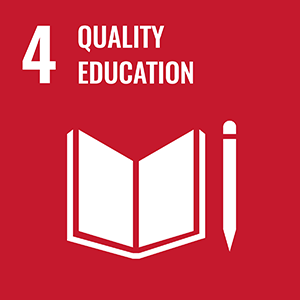International Day of Education
AI and Education: Human Agency in an Automated World
Under the theme “AI and education: Preserving human agency in a world of automation”, the 2025 International Day of Education encourages reflections on the power of education to equip individuals and communities to navigate, understand and influence technological advancement.
As computer and AI-driven systems become more sophisticated, the boundaries between human intention and machine-driven action often blur, raising critical questions about how to preserve, redefine, and, ideally, elevate human agency in an age of technological acceleration
Find out more on UNESCO's website.
24 January 2025: 10:00 am - 5:00 pm CET
Location:UNESCO Headquarters, Paris, France, Room I
Arrangement type: In-Person and livestream
Concept note
Contact: X.Zheng M.Pagano
24 January 2025: 10:00 am - 12:00 pm EST
Location: Trusteeship Chamber, UNHQ, New York, United States of America
Arrangement type: In person
Contact: ELISABETTA.CAPORASO
Good schools need good school leaders
Leadership is essential for quality education, seen as the second most important factor influencing learning outcomes. Effective leadership occurs at various levels, including within schools and in government.
The latest edition of the examines the Global Education Monitoring Report requirements for good educational leadership, highlighting how they differ across countries and change over time. It explores the visions driving leadership, practices that lead to improved education outcomes, and the impact of external social, cultural, and governance factors on effective leadership.
Background
Education is a human right, a public good and a public responsibility.
The United Nations General Assembly proclaimed 24 January as International Day of Education, in celebration of the role of education for peace and development.
Education is a human right
The right to education is enshrined in article 26 of the Universal Declaration of Human Rights. The declaration calls for free and compulsory elementary education. The Convention on the Rights of the Child, adopted in 1989, goes further to stipulate that countries shall make higher education accessible to all.
 Education is key to sustainable development
Education is key to sustainable development
When it adopted the 2030 Agenda for Sustainable Development in September 2015, the international community recognized that education is essential for the success of all 17 of its goals. Sustainable Development Goal 4, in particular, aims to “ensure inclusive and equitable quality education and promote lifelong learning opportunities for all” by 2030.
Challenges to achieving universal education
Education offers children a ladder out of poverty and a path to a promising future. But about 244 million children and adolescents around the world are out of school; 617 million children and adolescents cannot read and do basic math; less than 40% of girls in sub-Saharan Africa complete lower secondary school and some four million children and youth refugees are out of school. Their right to education is being violated and it is unacceptable.
Without inclusive and equitable quality education and lifelong opportunities for all, countries will not succeed in achieving gender equality and breaking the cycle of poverty that is leaving millions of children, youth and adults behind.
UN
 Ўзбекча
Ўзбекча English
English Русский
Русский






